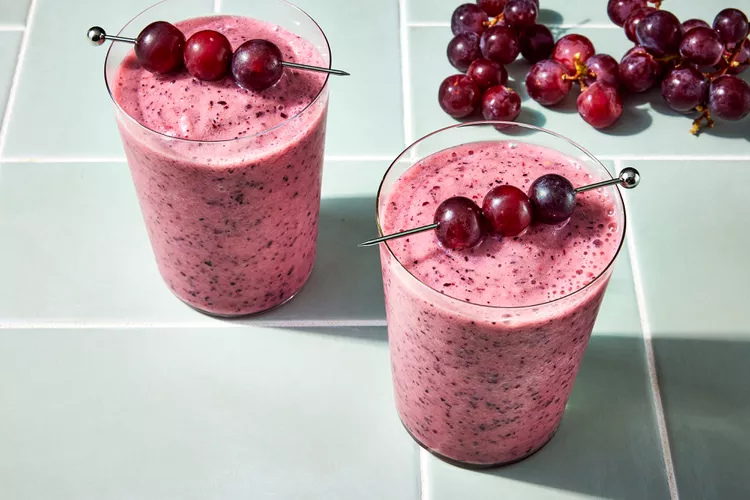You can enjoy raw honey directly from the honey comb, which is crafted from natural bees wax. This delicious and pure form of honey is not only a sweet treat but also comes with potential health benefits. For instance, consuming raw honey may promote improved liver function and support heart health. However, it’s essential to enjoy it in moderation, as indulging in large quantities could lead to adverse effects on your health. Always consider balancing your intake to maximize the benefits while minimizing any risks associated with excessive consumption.
Contents
What Is Honeycomb?
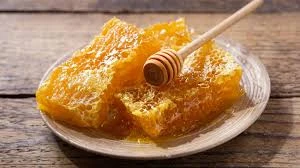
Honey comb is a remarkable natural product created by honey bees to store honey, pollen, and to house their larvae. This unique structure consists of a series of hexagonal cells made from beeswax, typically filled with raw honey. Unlike commercial honey, raw honey is not pasteurized or filtered, preserving its natural enzymes and nutrients. Additionally, honeycomb may contain small amounts of bee pollen, propolis, and royal jelly—other bee-derived products known for their potential health benefits. While these substances are present in limited quantities, they can contribute to the overall nutritional profile of honeycomb. Enjoying honeycomb means you can consume both the delectable honey and the waxy cells, making it a delightful treat that showcases the incredible work of bees.
Rich in Certain Nutrients
Honey comb is a treasure trove of nutritional benefits, rich in carbohydrates and antioxidants. Its primary ingredient, raw honey, contributes small amounts of protein, vitamins, and minerals, but is predominantly composed of 95–99% sugar and water. Unlike processed honey, raw honey retains its natural enzymes, such as glucose oxidase, which provide antimicrobial and antibacterial properties. These beneficial enzymes are often destroyed through the heating and filtering processes that most commercial honeys undergo.
Additionally, raw honey is less susceptible to contamination from sweeteners like high-fructose corn syrup and is generally richer in antioxidants compared to its processed counterparts. In fact, the levels of antioxidants in raw honey can be as much as 4.3 times higher than in processed honey. These antioxidants, primarily in the form of polyphenols, are beneficial plant compounds that help promote health, reduce inflammation, and protect the body from disease. Research indicates that these compounds may lower the risk of conditions such as diabetes, dementia, heart disease, and even certain types of cancer.
Furthermore, honeycomb contains beeswax, which provides heart-healthy long-chain fatty acids and alcohols. These components may play a role in lowering cholesterol levels, making honey comb not just a delicious treat but also a health-conscious choice.
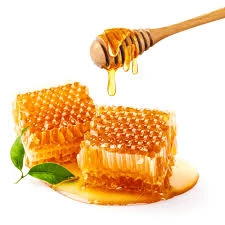
May Promote Heart Health
Honey comb has the potential to enhance your heart health significantly. Research indicates that the long-chain fatty acids and alcohols present in beeswax can contribute to lowering high blood cholesterol levels, which is a key risk factor for heart disease. For example, a comprehensive review highlights that beeswax alcohols might reduce “bad” LDL cholesterol levels by as much as 29% while simultaneously increasing “good” HDL cholesterol by 8–15%.
However, it’s essential to note that the studies referenced in this review utilized concentrated amounts of isolated alcohols derived from beeswax, making it challenging to determine whether the small quantities found in honeycomb would have similar cholesterol-lowering effects. That said, honey itself may possess comparable benefits.
In one small-scale study, participants were given either 70 grams of sugar or honey daily. After 30 days, those consuming honey saw an increase in their “good” HDL cholesterol by 3.3% and a reduction in “bad” LDL cholesterol by 5.8%. Additionally, substituting sugar with honey may lead to a decrease in triglyceride levels by up to 19%.
Moreover, the antioxidants found in honey can help dilate the arteries that supply blood to the heart. This dilation can enhance blood flow and lower blood pressure, potentially diminishing the risks of blood clots, heart attacks, and strokes. By incorporating honeycomb and honey into your diet, you may take significant steps toward a healthier heart.
May Protect Against Infections
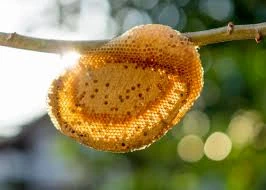
Honey comb has the potential to enhance your body’s defense against various bacteria and fungi. For example, several test-tube studies have demonstrated that beeswax extracts can provide a protective barrier against harmful microorganisms, including Staphylococcus aureus, Candida albicans, Salmonella enterica, and E. coli. These findings underscore the promising antimicrobial properties of honeycomb.
In addition to its antibacterial benefits, honey itself is widely recognized for its antimicrobial properties. Research suggests that honey may play a role in safeguarding your gut against the intestinal parasite Giardia lamblia, which can cause digestive issues. While these preliminary findings are promising, it’s important to note that human studies are essential to confirm the effectiveness of honeycomb and honey in combating these pathogens.
By incorporating honey comb into your diet, you may harness its natural abilities to bolster your immune system and promote overall health. However, more research is necessary to fully understand the extent of its protective benefits against various infections..
May Reduce Coughing in Children
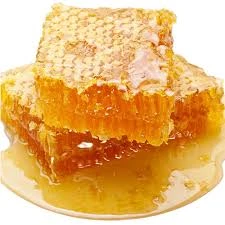
Honey comb may be a natural remedy for reducing coughing in children. Youngsters are particularly susceptible to upper respiratory tract infections, which often lead to persistent coughs. Research indicates that honey can effectively suppress these coughs, providing much-needed relief. In one notable study, administering just 1/2 teaspoon (2.5 ml) of buckwheat honey 30 minutes before bedtime proved to be more effective than traditional cough syrups in alleviating discomfort associated with coughing in children. Remarkably, the children who received buckwheat honey also experienced better sleep compared to those given cough syrup or no treatment at all.
Given that honeycomb is rich in honey, it is likely to offer similar cough-suppressing benefits. However, it’s crucial to exercise caution, as honey can contain spores of the Clostridium botulinum bacteria, which can pose serious risks to infants. Therefore, it is strongly advised that honey or honeycomb not be given to children under 12 months of age to avoid any health complications. By considering these factors, parents can make informed decisions about using honeycomb as a natural cough remedy for their older children.
Potential Sugar Alternative for People With Diabetes
Honey comb may serve as a beneficial alternative to sugar for individuals managing diabetes. One reason is that honey is significantly sweeter than traditional sugar, meaning that smaller amounts are required to achieve the same level of sweetness. Additionally, research suggests that honey may cause a lesser increase in blood sugar levels compared to refined sugar, making it a potentially safer option for those concerned about their glucose levels.
However, it’s important to note that honey still has the capacity to elevate blood sugar, so individuals with diabetes should consume it in moderation. Furthermore, the alcohols present in beeswax may play a role in reducing insulin resistance, a condition that often contributes to elevated blood sugar levels.
In one small-scale study involving participants with nonalcoholic fatty liver disease (NAFLD)—a condition characterized by fat accumulation in the liver and often associated with insulin resistance—beeswax alcohol extracts were shown to lower insulin levels by 37%. This reduction in insulin levels may indicate an improvement in insulin sensitivity, which could provide additional benefits for those with diabetes.
Despite these promising findings, it is essential to highlight that further, more comprehensive studies are needed to validate these effects and determine the full potential of honeycomb and its components in diabetes management. By considering these insights, individuals can make informed dietary choices that support their health and well-being.
May Improve Liver Function
Honey comb may play a significant role in promoting a healthier liver. In a notable 24-week study, participants suffering from liver disease were given a daily dose of beeswax alcohols. Remarkably, 48% of those in the beeswax group experienced a reduction in symptoms such as abdominal pain, bloating, and nausea, compared to only 8% in the placebo group. Furthermore, the study revealed that 28% of participants taking beeswax alcohols saw their liver function return to normal, while none in the placebo group reported similar improvements.
While these findings are encouraging, it’s important to recognize that the exact amount of honeycomb required to achieve these benefits remains unclear. More comprehensive studies involving human subjects are essential to draw definitive conclusions about the impact of honeycomb on liver health. As research progresses, honeycomb could emerge as a natural option for supporting liver function and overall well-being..
How to Use It
Honeycomb offers a delightful array of consumption options, making it a versatile addition to your diet. You can enjoy it raw, savoring its natural sweetness, or use it as a luxurious spread on warm bread or English muffins. It also serves as an excellent sweetener for homemade desserts, and can elevate your breakfast favorites like pancakes, oatmeal, or yogurt.
For a gourmet touch, consider adding honeycomb to a salad, or pairing it with fruits, charcuterie, or aged cheeses for a delicious snack or appetizer. You can typically find honeycomb at your local health food store or farmers market, and it is also readily available for purchase online.
When selecting honeycomb, remember that darker honey tends to have a higher concentration of beneficial compounds, including antioxidants. One of the best features of honeycomb is its long shelf life; it can be stored at room temperature for extended periods. Although it may crystallize over time, rest assured that its crystallized form remains perfectly safe and enjoyable to eat.
Potential Dangers
Honeycomb is widely regarded as a safe food option for most individuals. However, due to its honey content, it can be vulnerable to contamination from C. botulinum spores, which pose significant health risks, particularly for pregnant women and children under 12 months of age. In rare instances, consuming large quantities of honeycomb could lead to stomach obstructions, highlighting the importance of moderation when enjoying this treat.
To reduce the risk of any adverse effects, it’s advisable to limit daily honeycomb intake or to simply remove and discard the waxy cells before consumption. Additionally, individuals with allergies to bee venom or pollen should exercise caution, as honeycomb may trigger an allergic reaction.
While honeycomb offers various potential health benefits, it is essential to remember that it is also high in sugar. Therefore, enjoying honeycomb in moderation is key to balancing its sweetness with your overall health goals. By being mindful of these considerations, you can safely savor the delightful flavors and benefits that honeycomb has to offer.
The Bottom Line
Honey comb is a remarkable natural product created by bees, composed of waxy, hexagonal cells filled with raw honey. Both honey and its comb are not only delicious but also offer a wealth of health benefits. These include potential properties for fighting infections, enhancing heart health, and even improving liver function. Additionally, honeycomb can serve as a sweetener alternative for those managing diabetes, thanks to its unique composition.
Despite its numerous advantages, it’s important to note that honeycomb is still high in sugars, necessitating moderation in its consumption. By enjoying honeycomb mindfully, you can savor its delightful flavors while reaping its potential health benefits, making it a delicious and nutritious addition to your diet.
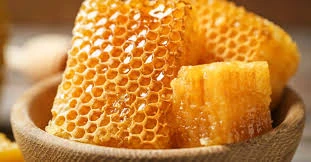
Summary
Honeycomb is a fascinating natural product crafted by bees, serving as a storage space for their larvae, honey, and pollen. Remarkably, every part of honeycomb is edible, including the waxy cells and the raw honey they house. The two primary components of honeycomb are raw honey and beeswax. Raw honey is celebrated for its abundance of enzymes and antioxidants, while beeswax is a source of long-chain fatty acids and alcohols, all contributing positively to your well-being.
Consuming honeycomb may offer significant heart health benefits by enhancing blood flow and increasing levels of “good” HDL cholesterol, while also lowering blood pressure, triglycerides, and “bad” LDL cholesterol. Additionally, honeycomb may bolster your body’s defenses against certain fungi and pathogenic bacteria, as well as help protect your gut from specific parasites, although further human research is necessary to validate these effects.
Notably, honeycomb’s rich honey content may also aid in reducing coughing in children, but it is crucial to avoid giving it to infants under one year old due to the risk of botulism. Interestingly, honeycomb tends to elevate blood sugar levels less than refined sugar, and compounds within it may assist in lowering insulin resistance, although more studies are needed in this area.
The beeswax alcohols present in honeycomb have shown potential in improving liver function and alleviating symptoms for individuals with liver disease, yet additional research is warranted.
Honeycomb can be enjoyed as a natural sweetener or paired with a variety of dishes, making it a versatile ingredient in your kitchen. You can typically find honeycomb at local farmers’ markets, and it should be stored at room temperature for optimal freshness.
Generally, eating small amounts of honeycomb is considered safe for most individuals. However, it is advised to refrain from giving honeycomb to infants or consuming it if pregnant, due to the risk of botulism. Since honey is inherently high in sugar, moderation is key to enjoying this delightful and nutritious treat.



